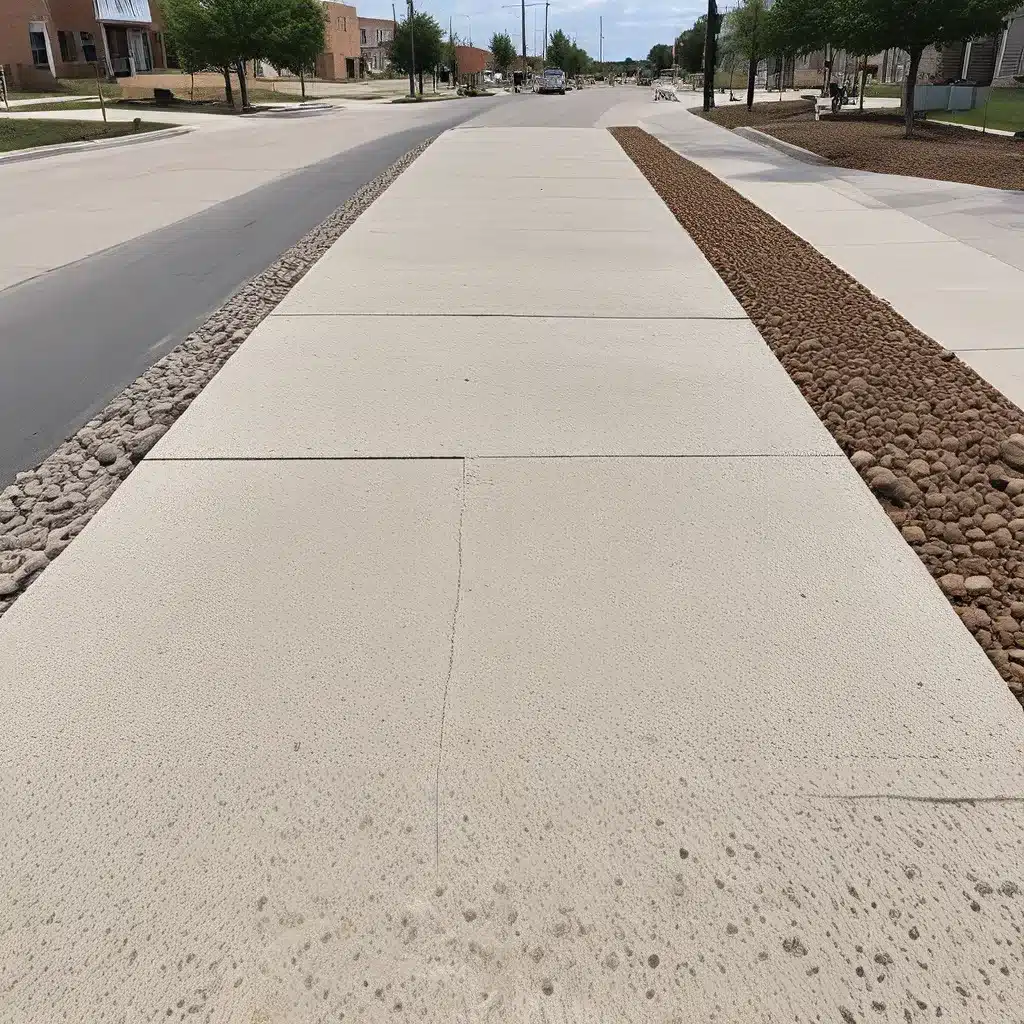
The Importance of Weather-Resistant Concrete
Concrete is a robust material used in various constructions, including roads, buildings, and pavements. However, its durability can be significantly influenced by weather conditions, making it imperative for professionals to understand how to manage these effects during concrete paving, maintenance, and repair.
Weather conditions can pose significant challenges to concrete, affecting its strength, longevity, and overall performance. Extreme temperatures, both high and low, can disrupt the hydration process, leading to reduced strength and increased susceptibility to damage. Moisture and precipitation can also compromise the structural integrity of concrete, causing cracking, scaling, and deterioration.
To ensure the long-term viability of concrete installations, it is crucial to employ best practices in paving, maintenance, and repair, considering the unique climate conditions of the Kansas City area. By understanding the impact of weather on concrete and implementing targeted strategies, contractors can extend the lifespan of concrete structures while reducing their environmental impact.
Concrete Paving Techniques for Optimal Performance
When paving concrete in the Kansas City region, which experiences a continental climate with hot summers and cold winters, several techniques can be employed to mitigate the effects of weather:
Timing of Concrete Pouring: In warm or hot weather, it is crucial to plan the concrete pouring early in the morning or late in the evening to avoid peak temperatures. This helps manage the concrete temperature and prevent premature curing.
Temperature Management: Cooling aggregates or using chilled mixing water can help regulate the concrete temperature. Covering fresh concrete with sunshades or moist curing blankets also aids in retaining moisture and promoting even curing.
Cold Weather Considerations: Maintaining the concrete temperature above 5 degrees Celsius for the first 48 hours after pouring is essential in cold weather conditions. This can be achieved by using heated enclosures or thermal blankets. Adding accelerators to the concrete mix can also speed up the hydration process, reducing the risk of freezing before the concrete sets.
Concrete Mix Selection: Choosing a concrete mix that suits the specific climate conditions of the Kansas City area is crucial. For example, air-entrained concrete is beneficial in colder regions, as it helps manage freeze-thaw cycles by introducing tiny air bubbles into the concrete, providing spaces for water to expand when it freezes.
Concrete Maintenance and Repair Strategies
Proper maintenance and timely repair of concrete structures are essential to extending their lifespan and mitigating the effects of weather. Some key strategies include:
Sealant Application: Applying high-quality sealants can protect concrete from moisture penetration, UV rays, and chemical exposures. Sealants should be applied after the concrete has cured completely and then reapplied regularly, especially in areas with severe weather conditions.
Compaction and Jointing: Proper compaction and jointing of concrete pavements help manage the stresses caused by temperature changes and moisture exposure. Joints allow concrete to expand and contract without causing surface cracks.
Protective Measures: Protecting concrete from extreme heat and direct sunlight is essential during the summer. Regular cleaning and applying a reflective surface treatment can reduce surface temperature and slow down the aging process caused by UV exposure.
Winter Maintenance: In winter, deicing chemicals should be used cautiously, as they can cause concrete scaling and deterioration. Prompt snow removal and using sand for traction can help reduce the need for chemical deicers.
Proactive Inspections and Timely Repairs: Regular inspections for cracks and prompt repair of any damage help manage the harsh winter effects on concrete. Common repair methods include patching affected areas using sealants and, in some cases, overlaying with new concrete.
Innovative Concrete Solutions for Sustainability
Technological advancements have led to the development of high-performance concrete mixes that are more resistant to weather-related damage and have a lower environmental footprint. These innovative solutions include:
Durability-Enhancing Mixes: Concrete mixes with improved durability characteristics can better withstand the effects of temperature fluctuations, moisture, and chemical exposure, extending the lifespan of concrete structures.
Reduced Carbon Footprint: Innovative concrete formulations can incorporate recycled materials, reduce embodied emissions, and leverage geopolymer technology to minimize the environmental impact of concrete production and installation.
Real-Time Monitoring: Technological tools, such as sensors, can monitor the health of concrete structures in real-time, predicting potential issues before they become severe problems. This proactive approach helps in extending the lifespan of concrete pavements and structures.
By embracing these innovative concrete solutions, contractors in the Kansas City area can not only enhance the performance and durability of their concrete installations but also contribute to a more sustainable future.
Partnering with Concrete Experts in Kansas City
At Concrete Contractor Kansas City, we are committed to delivering high-quality, weather-resistant concrete solutions that reduce environmental impact. Our team of experienced professionals understands the unique challenges posed by the local climate and is dedicated to implementing the best practices in concrete paving, maintenance, and repair.
Whether you’re a homeowner looking to upgrade your driveway or a business owner in need of a robust commercial parking lot, our expertise can help you achieve long-lasting, sustainable concrete installations. Contact us today to schedule a free consultation and learn how we can assist you in making the most of your concrete projects in the Kansas City area.

